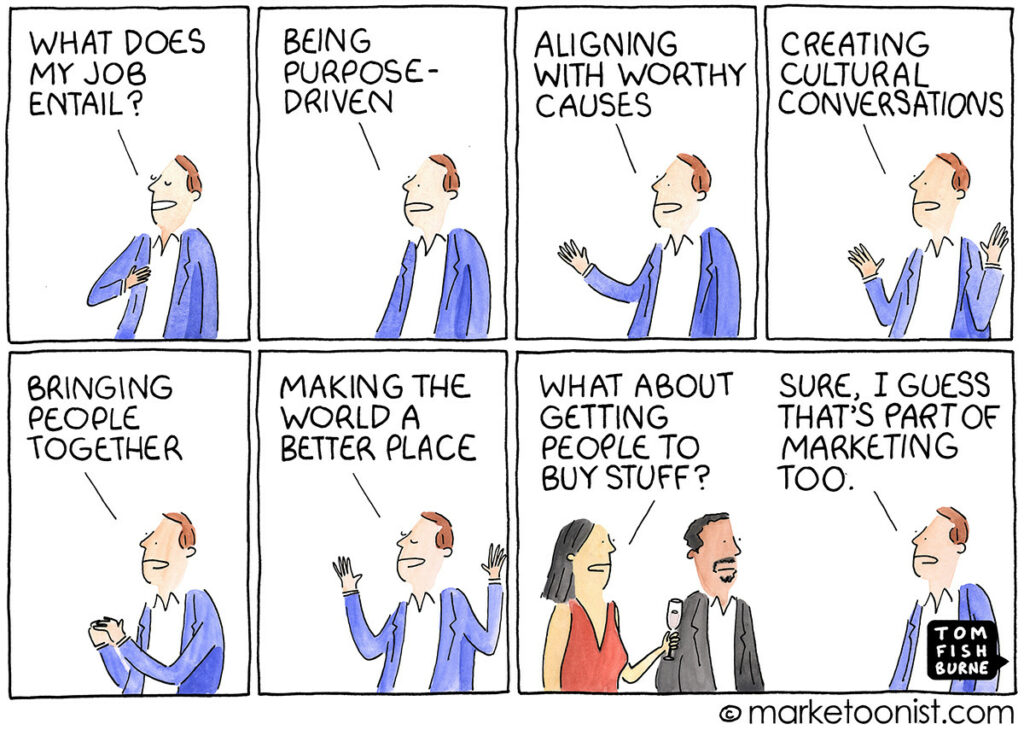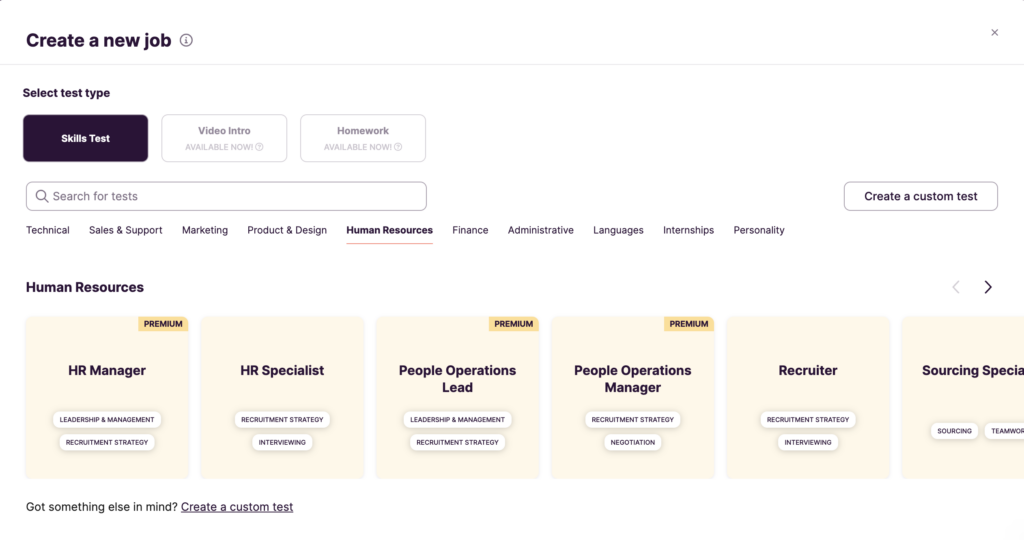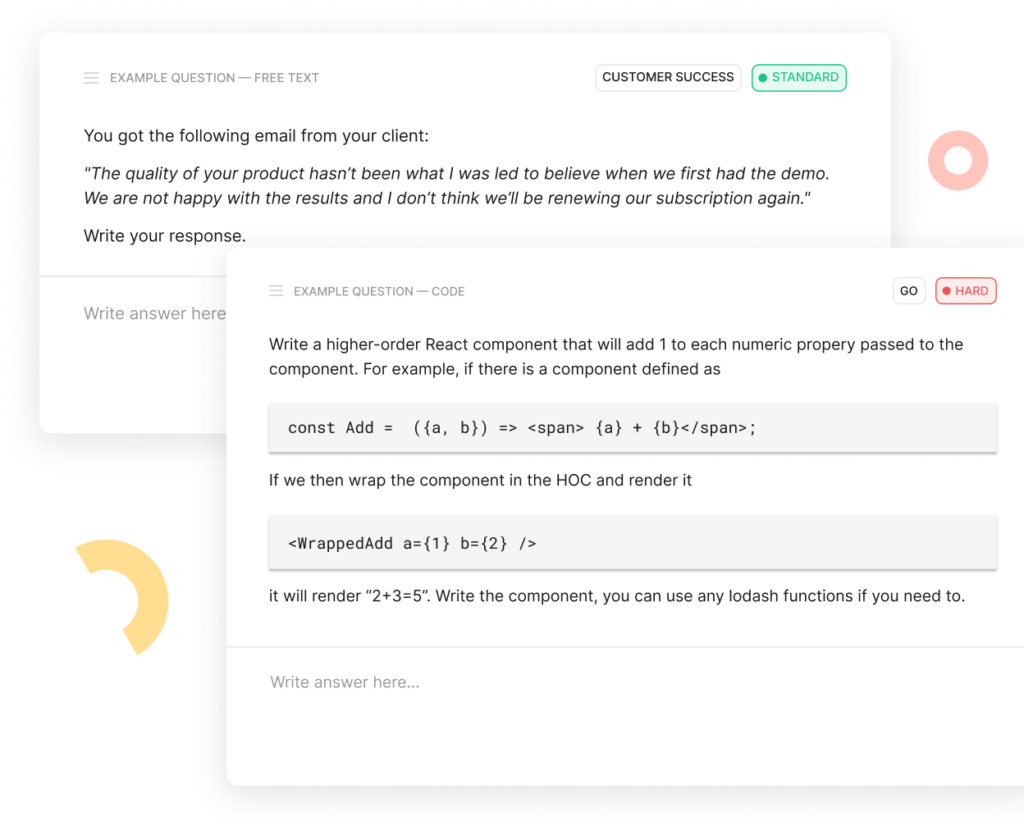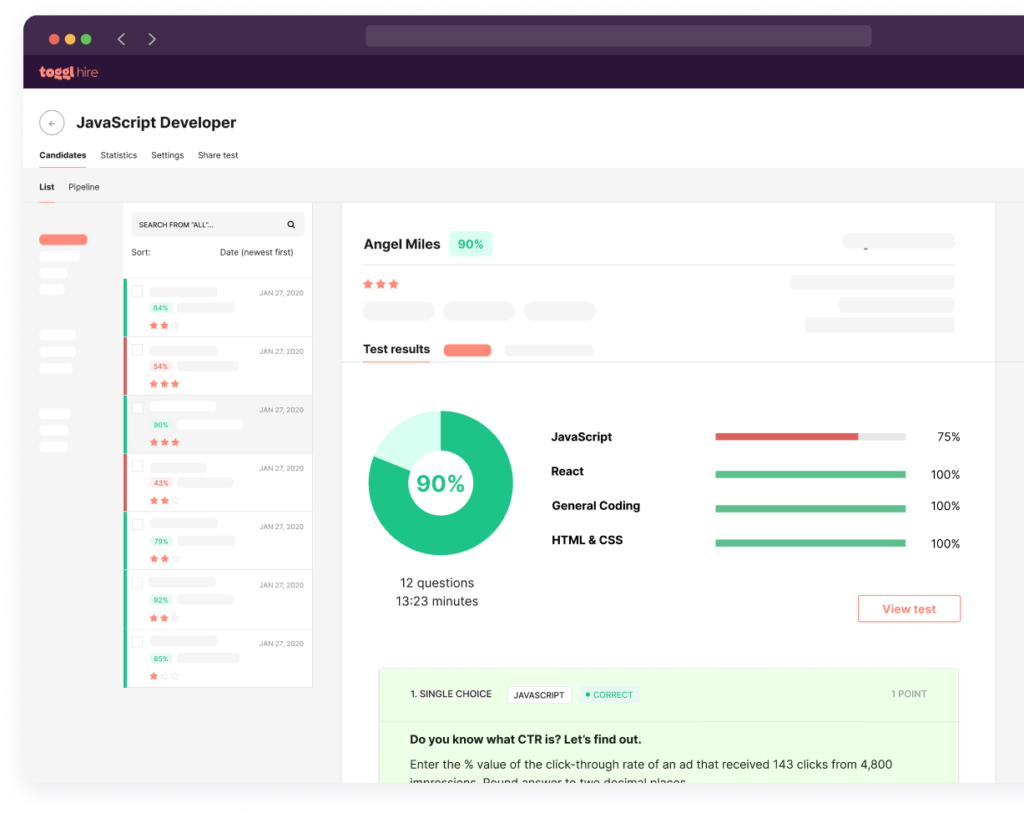Hard skills are one of the most difficult things to accurately assess during the hiring process.
But why?
On the surface, it sounds counter-intuitive. Since hard skills can be more objectively measured than their soft skills counterparts.
The reality is that while a resume can offer some important insight into a candidate’s past, it doesn’t necessarily say anything about how well they performed.
To understand that, hiring managers need to test for hard skills in order to more accurately and fairly assess potential candidates.
In this article, we’ll be deep diving into everything related to hard skills, looking at what they are and how they differ from soft skills, as well as several ways to accurately assess them.
So, let’s get started!
TL;DR – Key Takeaways
Hard skills are measurable competencies that people need to perform their job, which is different from soft skills, which are not unique to a specific job.
Examples of hard skills vary across fields, but they include technical skills like Python, Java, cloud computing, and data analysis. Or any other skill required for a specific role. Like taking blood for a nurse or scoring goals for a footballer.
Soft skills are subjective attributes making them harder to quantify and assess than hard skills. They include things like communication, empathy, and problem-solving.
Testing hard and soft skills requires different methods. Soft skills are typically assessed through interviews, and behavioral assessments, while methods for evaluating hard skills typically involve skills assessment tests specific to the competency, like coding or cognitive ability tests.
- Toggl Hire can help hiring managers evaluate both hard and soft skills in job candidates with our professionally-crafted Test Library. Select from a library of role-specific skills assessment tests crafted by experts, or create your own to screen candidates faster and better.
What are Hard Skills?
Hard skills are the tangible, measurable attributes people need to do their jobs. They are competencies that can be quantified or measured against a particular benchmark or standard and therefore be used to compare against other people.
Typically learned through education, training, or on-the-job experience, you can also think of them as the functional pieces of knowledge potential candidates need in order to work in a particular field.
While we’ll look at some examples in more detail next, common practical skills include proficiency in a foreign language, the ability to use software tools (such as Microsoft Word), professional qualifications (such as a degree) in a certain field, or technical skills (advanced computation).
Examples of Hard Skills
Here’s a list of 30 common hard skills you may come across for popular roles.
These are just the tip of the iceberg; you’ll encounter many different requirements depending on the roles you’re recruiting for.
| Department | Examples of hard skills |
|---|---|
| Finance | Accounting, Administration, P&L Management, Auditing, Book-keeping, Budgeting, Microsoft Excel & Google Drive |
| Marketing | SEO, Facebook Ads, Email Marketing, Copywriting, Proofreading, Social Media Management, Ad optimization, A/B testing, Growth Loops |
| Software development | Database management, HTML, CSS, JavaScript, C#, C++, PHP, Flutter, Debugging, GitHub |
| Customer support | Word processing, Microsoft Outlook, IT proficiency, Foreign languages, Reporting, CRM management, Typing speed |
| Graphic designer | UI design, UX design, Adobe Photoshop, Adobe Final Cut, illustration, Canva |
| Product management | Technical Writing, Prototyping, A/B testing, Data extraction and analysis, Agile Methodology Knowledge, Product roadmap development |
| Human resources | Employee retention, Recruitment, Regulations, Employee benefits, Payroll, HR tool management |
| Project management | Waterfall, Agile, Scrum, Jira, Cost management, Task management |
Hard Skills vs. Soft Skills
Soft skills refer to the interpersonal characteristics of an individual, like how they think, communicate, and work in a team. Often referred to as ‘people skills,’ they are the winning qualities that individuals need to work, lead, and interact with others.
By their nature, soft skills are far more subjective and, as such, are harder to quantify and assess. But, one thing that everyone agrees on is that candidates need a great blend of hard and soft skills to be their most effective.
| Department | Examples of soft skills |
|---|---|
| Finance | Communication, Negotiation, Critical thinking, Flexibility, Resilience, Teamwork, Problem-solving, Attention to detail, Planning & Organizational abilities |
| Marketing | Analytical thinking, Multitasking, Lifelong Learning, Creativity, Communication, Goal setting, Adaptability |
| Software development | Communication, Patience, Open-mindedness, Problem-solving, Critical thinking, Time management, Teamwork, Empathy, Self-awareness |
| Customer support | Empathy, Relationship management, Training, Persuasion, Problem-solving, Critical thinking, Decision-making, Time management |
| Graphic designer | Creativity, Communication, Problem-solving, Time management, Empathy, Active listening, Presentation, Giving and receiving feedback, Flexibility, Teamwork |
| Product management | Communication, Leadership, Motivation, Conflict management, Adaptability, Resourcefulness, Teamwork, Persuasion, Analytical thinking, Prioritization |
| Human resources | Communication, Problem-solving, Time management, Leadership, Empathy, Work ethic, Teamwork, Collaboration |
| Project management | Leadership, Motivation, Communication, Conflict management, Decision-making, Organisation, Time management, Prioritization |
How to Assess a Candidate’s Hard Skills
Often, the centerpiece of your hiring process evolves around the interview or a series of interviews. However, while interviews are the best method for evaluating your candidates’ soft skills, they won’t go as far as you need them to when assessing hard skills.

For example, a conversation with the candidate can reveal valuable insight into their communication and verbal reasoning skills, negotiation capabilities, and the candidate’s personality. But it isn’t ideal for figuring out how well they can code or manage an SQL database.
In order to assess a candidate’s hard skills, you need tests. Not only are assessments the best way to identify candidates’ hard skills, but they can also reveal a lot about their soft skills too (bonus!).
Types of assessments for testing hard skills:
Cognitive ability tests — This is one of your most powerful tools for understanding a candidate’s actual job performance. Cognitive ability tests assess how the candidate will perform in unexpected scenarios while mimicking the duties related to their position.
Technical coding tests — Coding tests are an effective way to measure a candidate’s coding proficiency. These programming tests can assess their familiarity with programming languages and their ability to utilize them in practical projects.
Computer skills assessment tests — Computer literacy tests evaluate a candidate’s technical abilities. These tests are often computer-based and keep up with advancing technology. Software simulations can be used to evaluate a candidate’s familiarity with programs like Word, PowerPoint, and Excel.
Basic math or writing assessments — Assess the candidate’s knowledge of basic math and writing concepts, as well as style, fluency, and grammar. This will help you evaluate their ability to handle these tasks.
Situational judgment tests measure a candidate’s critical thinking, problem-solving, and decision-making skills by simulating work-related scenarios. Also useful for assessing a candidate’s capacity to work under pressure.
Top 3 ways to assess candidates for hard skills
Here are three key ways to assess your candidates for the competencies they need during the hiring process.
1. Look out for Qualifications
During the early stages of your hiring process, look out for candidates who have achieved recognized qualifications, licenses, or certifications for a particular skill or knowledge area.
External qualifications are a great way to prove that a candidate has reached a certain level of competency in a particular hard skill. Most qualifications will require the individual to pass an exam to demonstrate their knowledge in a pressure situation.
Whether it’s a degree, professional qualification, or a record of CPD, remember that in most circumstances, you can also contact the awarding body to verify the individual’s competence.
Of course, qualifications usually need to be balanced off with practical experience, but they are a great way to quickly identify a certified hard skill level.
2. Run an Assessment Center
A great way to test for hard skills is to run an assessment center for particular roles. While many people only associate these with graduates, assessment centers can be used for candidates at all levels, including senior executives.
Assessment centers are a great place to test all sorts of different abilities as you can utilize various tasks, including aptitude tests.
Try including some of these tasks within your assessment center:
Create a custom assessment for your candidates, assessing them on their knowledge of a particular topic.
Challenge candidates to complete a job simulation such as an in-tray exercise or staged customer calls.
Finish by running a case study and presentation task for your candidates. This will have the supplementary benefit of assessing time management and communication skills alongside any other attributes you want the candidate to showcase.
Tip! Since the pandemic, video conferencing has finally become mainstream. You can now run virtual assessment centers, too, removing the need to host candidates at your office and making the whole process cheaper and easier for you and your candidates.
3. Skills Testing
And, of course, we’re big advocates of using testing to assess candidates on their competencies and knowledge.
Skills tests are a great way to test a candidate’s abilities, going far beyond simply listing them on a resume. Not only are they great for you as hiring managers, but they also offer candidates the chance to stand out from the crowd and showcase how good they really are in a fun and interactive way!
They also help remove any bias within your recruiting, ensuring that you’re progressing with the best candidates based on their knowledge and nothing else.
Assess hard skills with Toggl Hire
Like the sound of that? Here’s how Toggl Hire can help you with hard skills testing.
Step 1 – Create Skills Tests in 2 Clicks
Setting up a skills test in Toggl Hire is super easy – in fact, it requires just two clicks! Our role-specific templates cover hiring across every department of your business, including technical, marketing, sales & support, leadership, and more!

Our library of over 15,000 questions ensures every test is completely unique, eliminating the chance of cheating. Best of all, those questions are quality-checked by our team of Community Experts to ensure they accurately evaluate the exact hard skills needed to perform the job role!
Step 2 – Customize Your Skills Assessments
While we do most of the legwork for you, we appreciate every role – and every organization – is unique. That’s why you can add as many bespoke questions to your Smart Tests as you need to cover every single one of your must-have hard skills.

Simply jump in and add customized questions in the format that’s right for you. That could be free text, single-choice, multiple-choice, picture-choice, numeric input, or code input.
Step 3 – Get The Results
As your candidates complete their tests, evaluations of their hard skills start rolling into your dashboard!

Here, you can easily see your candidates ranked on their performance, with the ability to quickly search or filter on particular score percentages or customizable tags. This is a great way to identify which candidates have the hard skills to perform well in the role.
If you’re expecting a high volume of candidates, you can even set a ‘percentage to pass’ threshold which will automatically reject candidates that don’t hit the mark. This helps you put testing on autopilot, with customized rejection emails tailored to you and your organization.
From there, you’re in a position to take the best candidates forward to interview – now that you know they have the competencies you need. A simple three-step process from start to finish!

Summary
Hard skills are the measurable competencies people learn through education or in the workplace. And with the right tests, it’s easy to assess how skilled they really are.
Whether it’s through an assessment center, external qualification, or testing, there are many ways to certify a candidate’s hard skills against the standard you need!
And, when it comes to testing, whether it’s a foreign language, accounting, or proficiency in Microsoft Word, it’s just two easy clicks to get started with Toggl Hire skills assessments!
James Elliott is a Strategy Manager and Writer from London, UK. When not working on the day job, James writes on a variety of business and project management topics with a focus on content that enables readers to take action and improve their ways of working. You can check out James’ work on his website or by connecting on LinkedIn.





